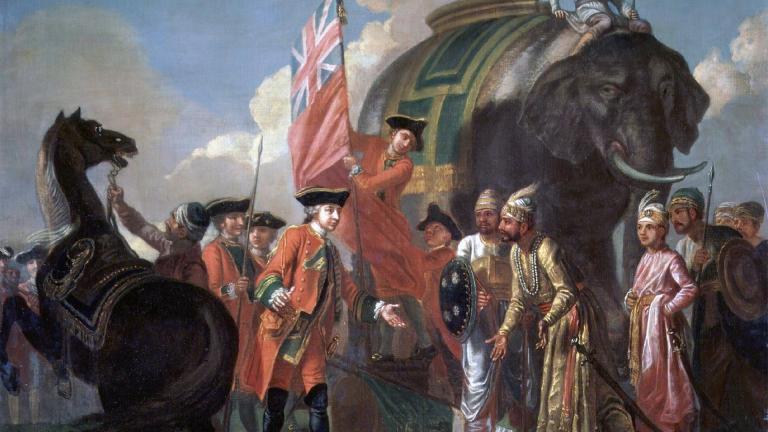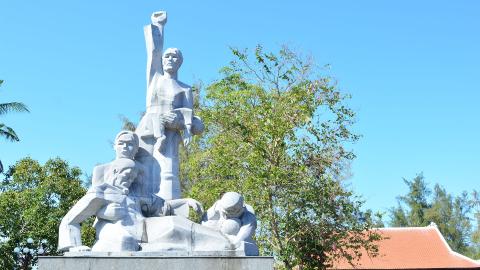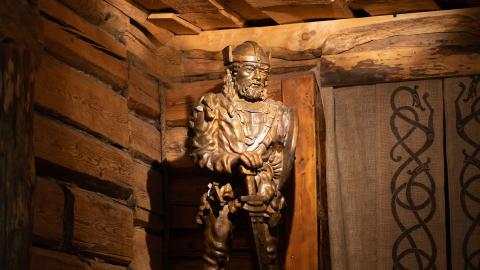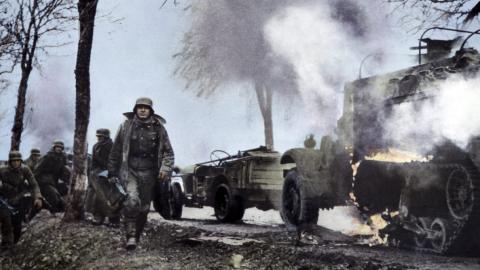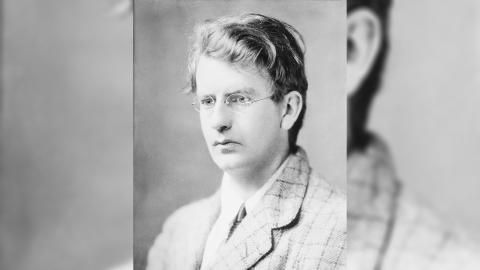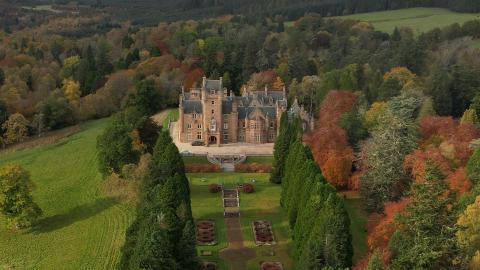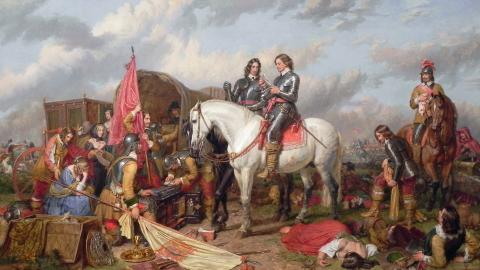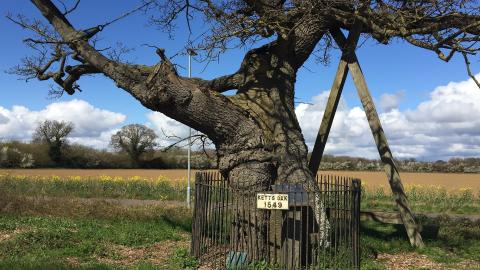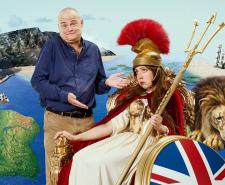
A brief timeline of the British Empire
Image: Robert Clive's victory at the Battle of Plassey established the East India Company as both a military and commercial power | Public Domain
In Al Murray: Why Does Everyone Hate the British Empire?, comedian and historian Al Murray travels to India, Jamaica, South Africa and Australia to learn about the origins of British rule, its impact upon each country and its legacy. The show is now available on catch up.
At its height, the British Empire was the biggest the world had ever seen. While its story is too vast to condense on one page, here’s a handy timeline of the major milestones.
1496
John Cabot, an Italian explorer living in England, is authorised by Henry VII to ‘discover and investigate whatsoever islands, countries, regions or provinces of heathens and infidels, in whatsoever part of the world placed, which before this time were unknown to all Christians.’ The following year, he makes landfall in North America, marking the start of British explorations in the ‘New World’.
1607
The first permanent English colony in North America is established at Jamestown, in modern-day Virginia. The early settlers persist in the face of severe hardships and famine, resorting to cannibalism to survive. The first African slaves are shipped to the colony in 1619.
1655
During the Anglo-Spanish War, Oliver Cromwell’s English forces capture Spanish-controlled Jamaica and make it an English colony. This comes in the wake of other English colonies being created throughout what will become known as the British West Indies.
1664
The English capture New Amsterdam from Dutch settlers. They will go on to rename it New York in honour of James, Duke of York, brother of King Charles II. The wider Province of New York is one of what will eventually total 13 colonies making up British America.
1714
The War of the Spanish Succession, a gigantic conflict over control of the Spanish Empire which involved nations including the new United Kingdom of Great Britain, comes to an end. The war leaves Britain in a dominant position with yet more territories under its control, including Newfoundland, Gibraltar and Menorca.
1757
The British East India Company, a trading corporation so powerful that it has its own private army, wins the Battle of Plassey in India. It defeats the forces of Nawab of Bengal (ruler of large swathes of the subcontinent), and allows British military leader Robert Clive, dubbed ‘Clive of India’, to become Governor of Bengal and lay the foundations for British control of India.
1763
The highly complex Seven Years’ War, fought across the globe between allies led by Great Britain and France, and often regarded as the real ‘First World War’, comes to an end. Britain comes away with colonial territories in North America once owned by the French – among them, the colony of Canada. Britain’s victory over French forces in India also makes it the dominant colonial power in the subcontinent.
1768
British explorer and naval officer Captain James Cook embarks on a pivotal voyage to the South Pacific, during which he claims New Zealand and eastern Australia for Great Britain. He dubs the latter ‘New South Wales’.
1775
After a period of strained relations between Britain and the 13 colonies in North America, with much resentment among colonists over being taxed by the British Parliament without direct representation there, the American War of Independence breaks out. It results in Britain accepting the sovereignty of the United States of America.
1778
Many years after James Cook’s voyage Down Under, the British establish a penal colony in New South Wales, with convicted petty criminals sent there to work as labourers for non-convict settlers. Over time, it transitions to a civil society, with British claim eventually extending to the whole Australian continent. The country will go on to become a self-governing Dominion in the British Empire in 1901.
1807
Thanks in part to vociferous campaigning by anti-slavery activists like William Wilberforce, Parliament passes the Slave Trade Act 1807, which prohibits the slave trade in the British Empire. This leads to the creation of the Royal Navy’s West Africa Squadron, whose boats patrol the coast of West Africa to suppress the trade in human beings.
1857
Antipathy towards the policies of the British East India Company triggers a bloody rebellion by Indian troops who make up part of the Company’s army. The uprising, which spreads throughout the country and sees tortures and massacres committed by both sides, results in the ending of Company rule and the beginning of a long era of direct rule by the British government, known as the British Raj.
1899
Britain, having established colonies elsewhere in the continent of Africa, gets embroiled in the Boer War, a colonial conflict against the descendants of Dutch settlers in southern Africa. Although Britain eventually prevails, it’s a gruelling period which exacts a heavy toll on money and lives and causes many to question the strength and impregnability of the British Empire.
1947
Due to factors like the impact of WWII on British wealth and might, and the campaign for independence spearheaded by figures like Gandhi, India gains independence. The end of the British Raj is a huge historical moment, arguably marking the beginning of the end of the British Empire.
1960
Three years after former British colony Ghana became the first sub-Saharan African country to gain independence from European control, British Prime Minister Harold Macmillan delivers a famous speech acknowledging the ‘wind of change’ blowing through the colonies. It precedes an era of rapid decolonisation in Africa, the Caribbean and elsewhere.
1997
Britain hands over Hong Kong, its last major colony, to the People’s Republic of China. The ceremony is broadcast all over the world and is described by one newspaper as the moment that Britain ‘shut down the empire that once encompassed a quarter of the globe’.
